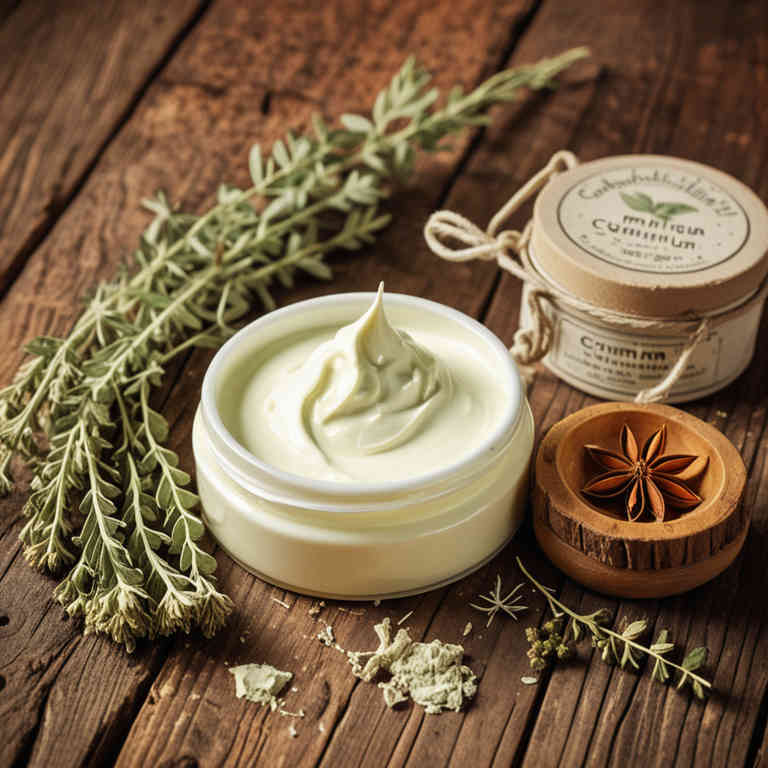Cuminum cyminum cream for medicinal use

Cuminum cyminum cream is a topical preparation made from ground cumin seeds combined with a base such as coconut oil or beeswax.
It is commonly used in herbalism to address skin conditions and promote healing due to its anti-inflammatory and antiseptic properties. The cream may help soothe irritations, reduce redness, and support the skin’s natural regeneration process. It is often applied to areas affected by eczema, minor burns, or insect bites.
In traditional herbal practices, it is also believed to aid in digestion when applied externally, though internal use should be guided by a professional.
Uses
Cuminum cyminum cream has been used to treat various ailments across different cultures for centuries.
Historically, it was valued in ancient Egypt, Greece, and Rome for its purported ability to aid digestion and relieve respiratory issues. In traditional medicine systems like Ayurveda and Chinese medicine, it was often incorporated into formulations to address skin conditions and promote overall wellness. Modern applications include its use in topical treatments for muscle pain and inflammation due to its potential anti-inflammatory properties.
Today, it is also found in some cosmetic products for its purported skin-nourishing benefits.
Benefits
Cuminum cyminum cream has health benefits such as reducing inflammation, improving digestion, and promoting skin health.
This herbal preparation, derived from cumin seeds, is known for its warming properties that can help alleviate symptoms of digestive disorders like bloating and gas. It may also support respiratory health by acting as an expectorant and helping to clear mucus from the airways. The antioxidants present in cumin can contribute to overall immune support and may help protect cells from oxidative stress.
Additionally, when applied topically, the cream may have soothing effects on the skin, making it useful for treating minor irritations or fungal infections.
Constituents
Cuminum cyminum cream active constituents include essential oils, such as limonene and alpha-pinene, along with flavonoids and alkaloids.
These components contribute to the cream's anti-inflammatory, antimicrobial, and analgesic properties. The essential oils help in reducing skin irritation and promoting healing. Flavonoids support antioxidant activity, which can protect skin cells from oxidative stress.
Alkaloids may aid in soothing muscle aches and improving circulation when applied topically.
Preparation
To make Cuminum cyminum cream, start by grinding 1 teaspoon of cumin seeds into a fine powder.
In a saucepan, heat 1/2 cup of coconut oil or a neutral oil over low heat until it begins to shimmer. Add the ground cumin and let it simmer for about 10 minutes, allowing the oils to infuse with the cumin's aroma and properties. Strain the mixture through a fine mesh strainer or cheesecloth to remove the solids.
Finally, transfer the infused oil to a clean jar and let it cool before use, or blend it with a small amount of beeswax or another emulsifying agent to create a cream-like consistency.
Side Effects
Cuminum cyminum cream may lead to skin irritation or allergic reactions in some individuals.
It is a topical preparation made from cumin seeds, often used for its warming and digestive properties. The cream may cause redness, itching, or a burning sensation when applied to the skin. Prolonged use could result in sensitization or dermatitis.
Individuals with sensitive skin or known allergies to cumin should avoid using this preparation.